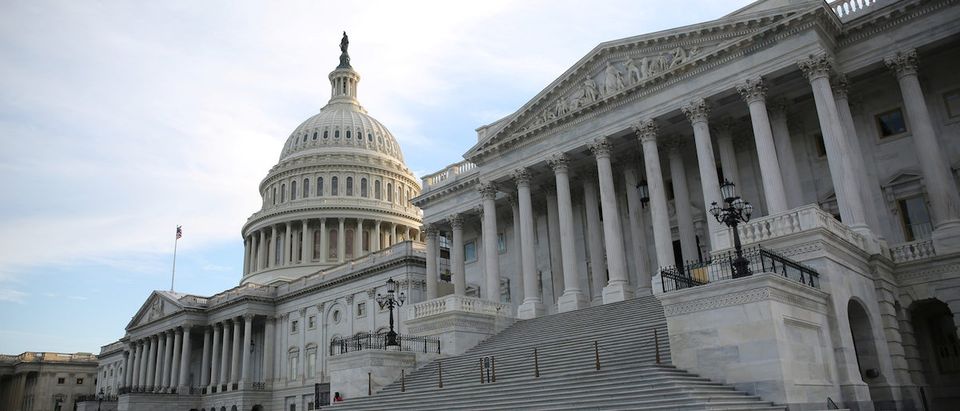Sigh. Here we go again. The House Republican Conference is quietly discussing the possibility of bringing back earmarks, or dedicated federal funds in appropriations bills usually for pet projects in a member’s district or state. The organizations or projects for which these funds are earmarked aren’t the subject to committee hearings and serve some special interest. Earmarks are pork-barrel spending by another name.
In November, House Republicans considered a proposal spearheaded by Reps. John Culberson (R-Texas), Mike Kelly (R-Pa.), Mike Rogers (R-Ala.), and Tom Rooney (R-Fla.) to revive earmarks. The thinking is that earmarks would make it easier for congressional leadership to trade for votes.
Realizing that proposal was a terrible message to send to voters the week after a “drain the swamp” election, Speaker Paul Ryan (R-Wis.) killed the proposal, though only temporarily. He wanted a “more thorough process to look at this issue.”
Prior to the moratorium that Republicans put in place in March 2010, earmarks became synonymous with the fiscal profligacy of the Bush administration and a Republican-controlled Congress and corruption found in the scandalslike those involving disgraced lobbyist Jack Abramoff and former Rep. Duke Cunningham (R-Calif.), once known as federal inmate #94405-198.
Sen. Jeff Flake (R-Ariz.) was a member of the House when he began his crusade to crush earmarks, which found their way out of the House Appropriations Committees, dubbed a “favor factory” by Abramoff. Flake called earmarks the “currency of corruption” and frequently offered amendments to strip them out of appropriations bills. The Arizona Republican successfully spearheaded the Senate’s earmark ban earlier this year.
Conservatives backed the Flake amendments, birthing the Porkbusters movement, the forefather of the Tea Party movement. Those involved in exposing the waste of taxpayer dollars for earmarks like $500,000 for a swimming pool and $1.5 million for a museum in Mississippi.
And, of course, there’s infamous “bridge to nowhere,” a $320 million bridge that would have connected the 50 or so residents of Gravina Island, Alaska to the town of Ketchikan. The bridge was the target of then-Sen. Tom Coburn (R-Okla.), who successfully fought to remove the funding from a federal highway bill.
When Republicans took control of Congress in January 1995, coming off a historic election, there were fewer than 2,000 earmarks, at a cost of roughly $10 billion. By 2005, just ten years later, there were nearly 14,000 earmarks, with a price tag of $29 billion.
Even in the years since the moratorium, earmarks still exist. According to the Citizens Against Government Waste’s 2017 Congressional Pig Book, there were more than 160 earmarks in FY 2017, at a cost of nearly $7 billion, and the process has actually gotten worse.
“Unfortunately, the earmark moratorium has not only failed to eliminate earmarks, but also has rendered the process patently less transparent,” the report explained. “There are no names of legislators, no list or chart of earmarks, and limited information on where and how the money will be spent.”
Republican Study Committee Chairman Mark Walker (R-N.C.) has emerged as a leader in the fight to keep earmarks from coming back. After the proposal to revive earmarks was killed by Speaker Ryan, Walker said, “We need to be talking about unifying and earmarks are another divisive issue.”
“Let’s focus on the major things that the new Trump administration is talking about, like the repeal of Obamacare, tax reform–things we have been promising the American people,” the North Carolina conservative added.
Little has changed since November. This Republican-controlled Congress has failed to repeal ObamaCare. Fundamental tax reform is up next in the House, and conservatives are ready to help get a much-needed victory for the American economy. Although many, if not most House Republicans, may want end the moratorium, reviving earmarks, which are little more than handouts to special interests, could cause an already tense relationship Republicans have with conservative to become toxic.
Jason Pye is the vice president of legislative affairs for FreedomWorks.












